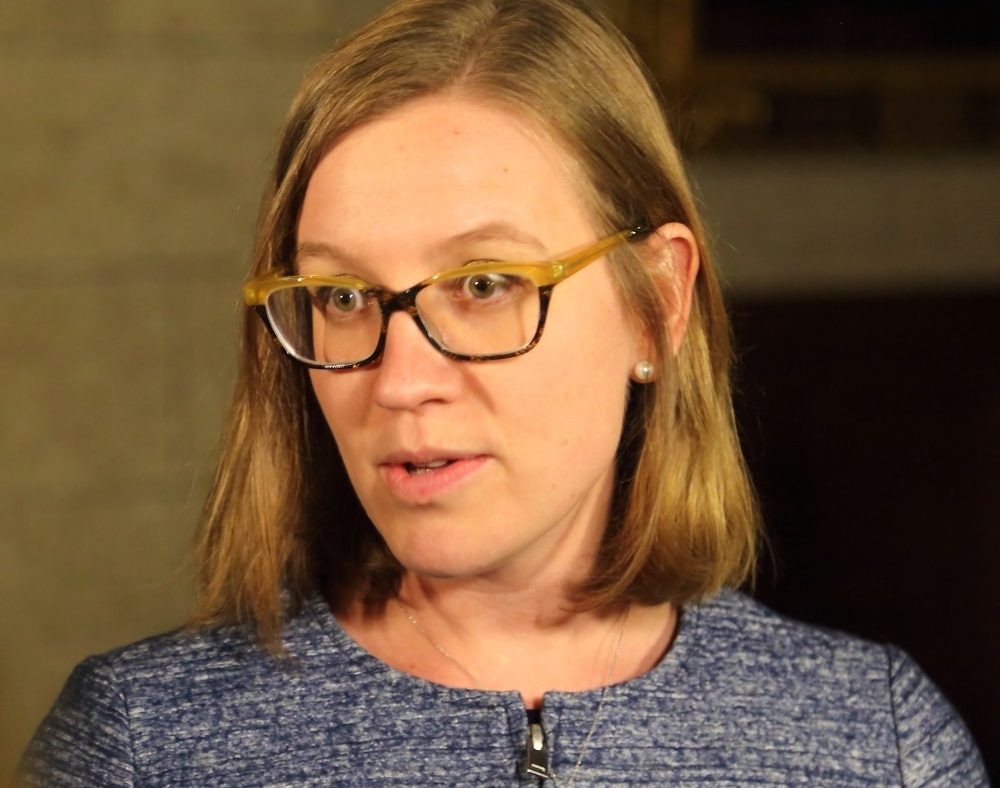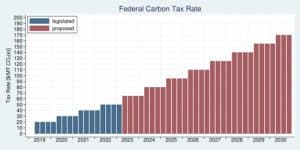Conservative Leader Pierre Poilievre set the tone for his party’s fall agenda by targeting the Liberals’ carbon price policy. Poilievre warned of a “nuclear winter” for the economy if the government’s planned carbon price increases take effect.
Poilievre described a dire scenario, claiming that high taxes would lead to “mass hunger and malnutrition” and force older people to endure frigid conditions just to survive the winter. He further argued that rampant inflation would make it impossible for Canadians to afford basic transportation.
Singh and Trudeau Clash on Climate Strategy
With the fall session of Parliament set to resume, all parties are recalibrating their strategies after NDP Leader Jagmeet Singh ended the agreement that kept Prime Minister Justin Trudeau’s Liberal government in power. Poilievre, maintaining his party’s lead in the polls, is preparing to introduce a non-confidence motion as early as this week.
However, passing the motion will be a challenge, as the Conservatives would need support from both the NDP and the Bloc Québécois, and neither has shown a willingness to trigger an election.
Jagmeet Singh criticized both the Liberals and the Conservatives for their climate policies. But he avoided clarifying whether an NDP government would maintain the consumer carbon price.
- The administration sets a carbon price of $65 per tonne of CO2 in 2023. This translates to an added cost of 14 cents per liter of gasoline, 10 cents for propane, and $145 per tonne of high-grade coal.
In response, Trudeau accused Singh of succumbing to political pressure from Poilievre. Meanwhile, Poilievre took aim at both leaders of Canada, calling the carbon tax an “existential threat to our economy and our way of life.” He also criticized Singh for failing to commit to bringing down the government despite withdrawing from the previous agreement.
The political stage is set for a heated session, with carbon pricing and economic policy at the forefront of the debate. Poilievre’s push against the carbon price signals a season of political maneuvering, as each party navigates shifting alliances and voter sentiments.
Poilievre’s ‘Nuclear Winter’ Comment Sparks Heated Political Debate
The Canadian political scene further heated up as Liberal House leader Karina Gould criticized Poilievre for his recent comments on carbon pricing. Poilievre warned of a “nuclear winter,” arguing that the federal carbon price would lead to widespread starvation and freezing as people struggle with unaffordable food and heating costs.
Gould fired back. She called Poilievre a “fraudster” for what she saw as irresponsible rhetoric that ignores Canada’s rebate system intended to offset carbon pricing.
The Canada Carbon Rebate (CCR), previously the Climate Action Incentive Payment (CAIP), is a tax-free benefit aimed at offsetting the federal carbon price for eligible individuals and families. It includes a basic amount plus a supplement for those in small or rural communities. The rebate amount varies by province and household size and is calculated annually based on the expected revenue collected from carbon pricing in each province.
Poilievre-Gould’s fiery exchange comes just as the House of Commons reconvenes, following the summer break and the end of an agreement that had insulated the Liberals from a snap election. Poilievre aims to trigger what he calls a “carbon tax election,” urging the other parties to vote the government down.
Bloc Québécois Leader Yves-François Blanchet hinted at the possibility of a short-lived parliamentary session, describing the current political climate as “playing chicken with four cars.”
Carbon Price Rebates: Poilievre’s Rejection and Public Misconceptions
- The federal carbon price currently adds about 17.6 cents to every liter of gasoline, but quarterly rebates aim to offset these costs for Canadians.
The chart below shows the federal government’s proposed annual carbon price increases each April 1st.
The Parliamentary Budget Office notes that 80% of households in Canada receive more in rebates than they pay in carbon pricing. However, the long-term economic impact, such as potential harm to jobs and wage growth, remains a concern.
Despite these nuances, Poilievre dismisses the rebate system and criticizes carbon pricing as an “existential threat” to the economy. His comment sparked accusations that he is ignoring expert opinions.
More than 200 economists have cited carbon pricing as the most efficient way to lower emissions, yet Poilievre pushes forward with his campaign against it.
Political Strategy Amid Carbon Pricing Debate
The Liberals are sharpening their attacks on Poilievre in an attempt to reverse his rise in the polls. Despite the end of the supply and confidence agreement, Gould stated that they are returning to a “normal minority parliament.” That means they’re willing to collaborate with any party to advance legislation.
Meanwhile, NDP Leader Jagmeet Singh has distanced himself from the consumer carbon price, focusing instead on holding big polluters accountable. The Conservatives plan to bring a non-confidence motion against the government. However, they would need support from both the Bloc and NDP to succeed, which appears uncertain.
The stage is on for a potentially turbulent parliamentary session, with major bills like the online harms act and the NDP-backed pharmacare bill in the legislative pipeline. The political debate over carbon pricing is poised to continue dominating discussions in the House. At the same time, each party maneuvers to address Canadians’ concerns on affordability, climate policy, and economic stability.


